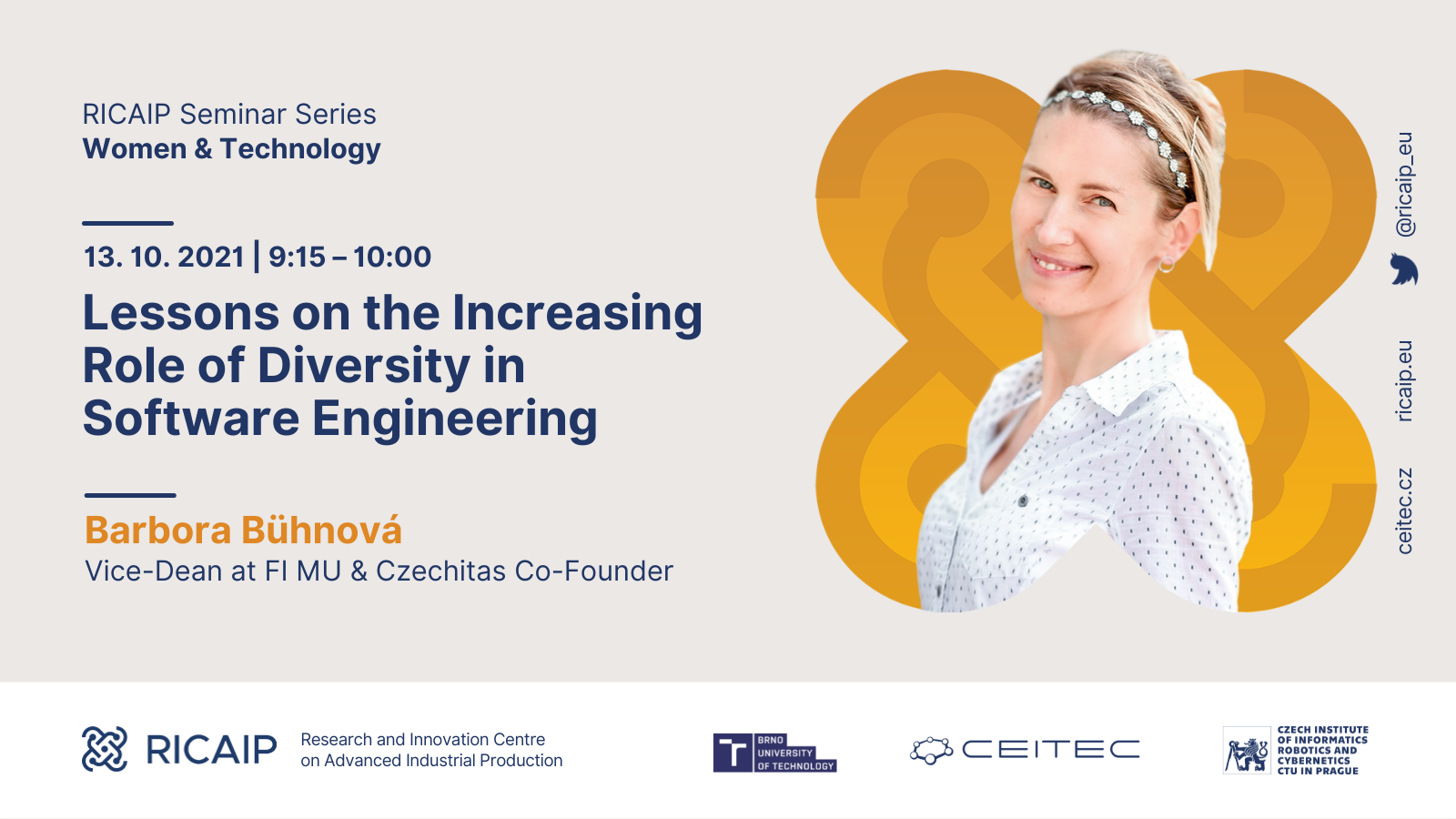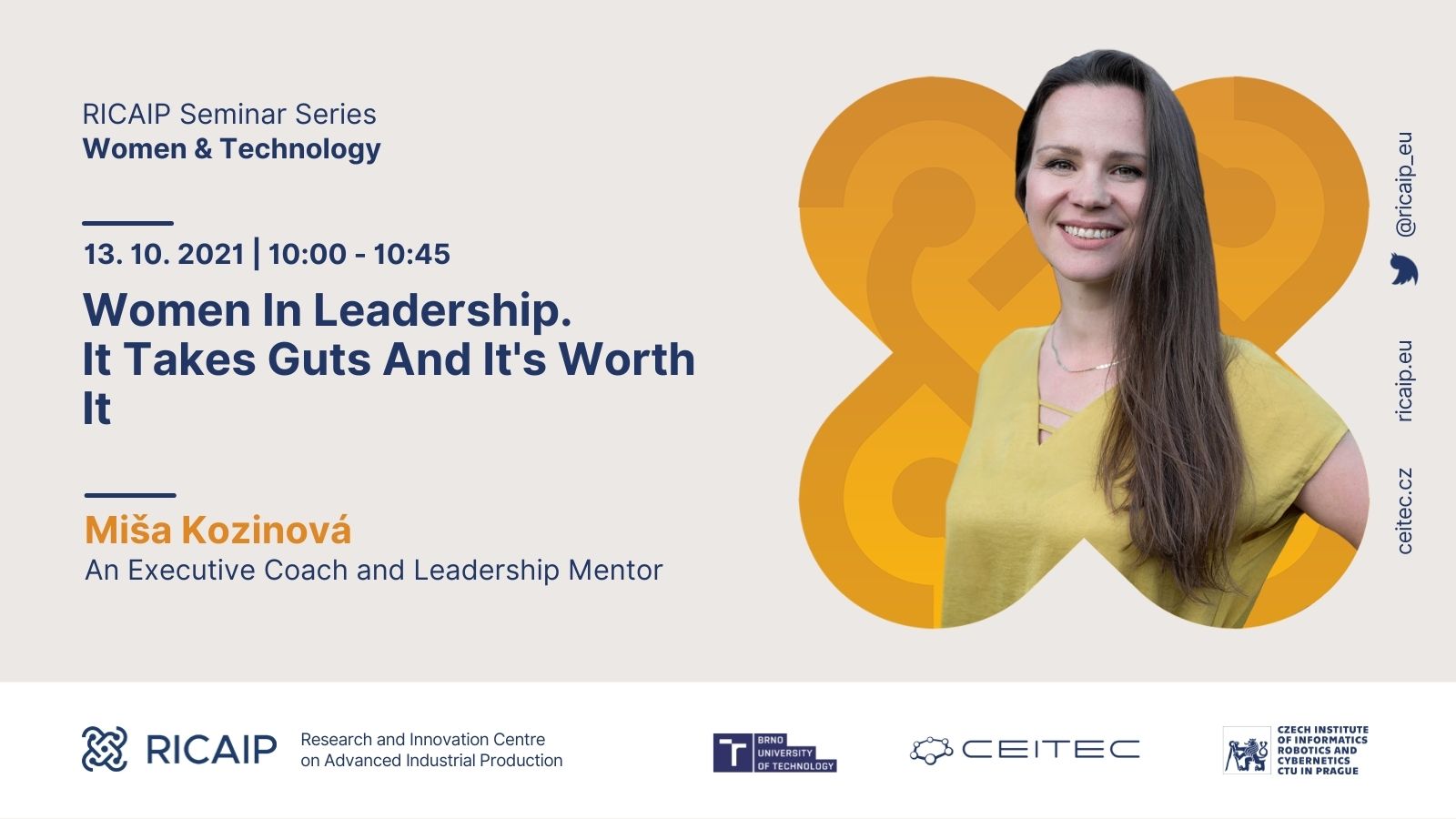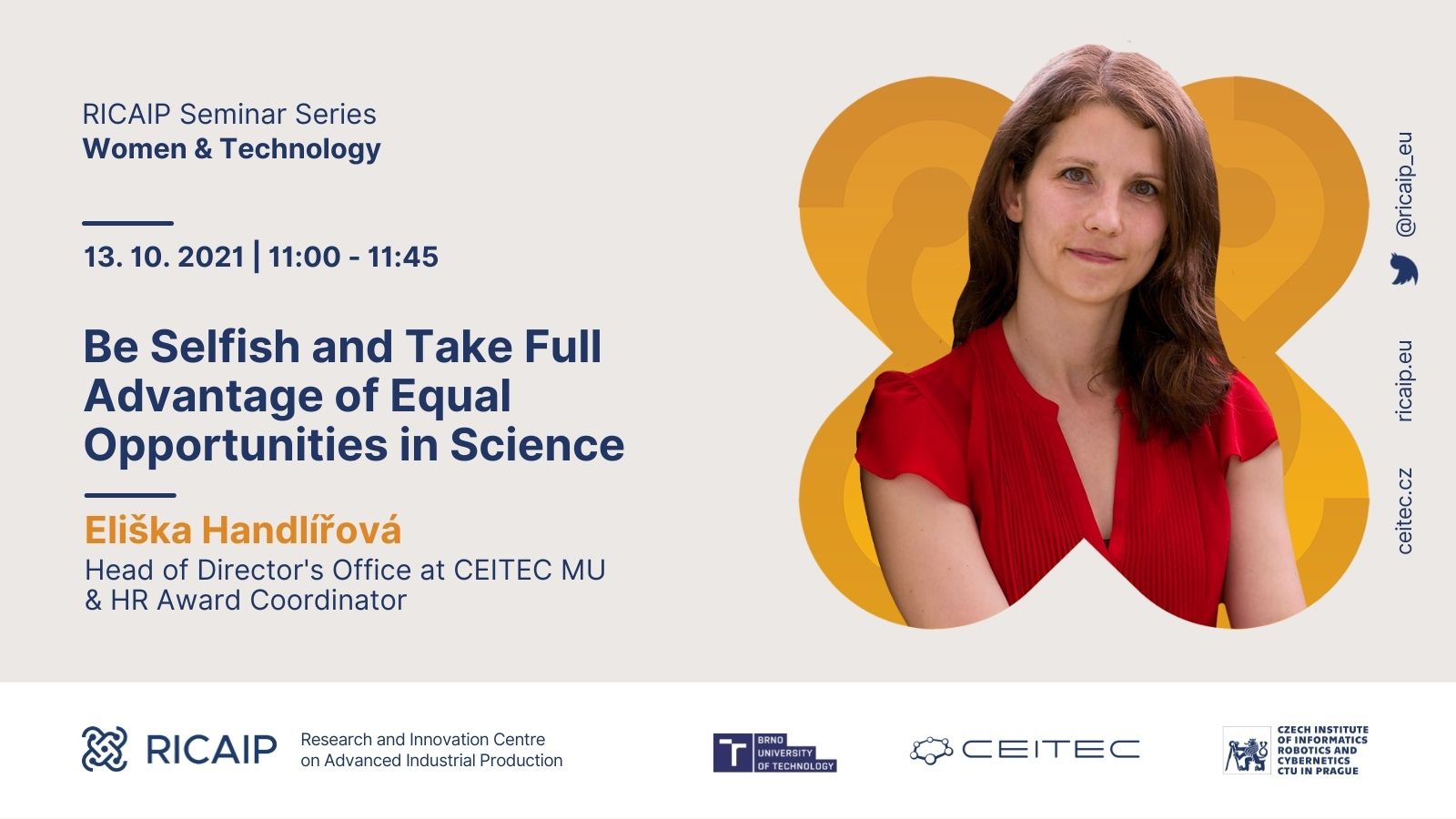TALKS
Opening speech by Tilman Becker (Director of RICAIP)
Lessons on the Increasing Role of Diversity in Software Engineering by Barbora Bühnová (Vice-Dean at FI MU and Czechitas Co-Founder)
In an increasingly technology-driven world and a rapidly changing economic environment, software engineering innovation and creativity cannot be cherished to its full potential if it is formed by homogeneous expertise. More so within the software engineering community, which needs to increasingly encourage innovation across boundaries. In this context, a question often comes up - Why do women choose particular interests, study programs and careers as alternative to software engineering? What are the triggers and benefits of these alternatives that software engineering is lacking? In this talk, I share findings from a recent questionnaire study, revealing the frustrations that women feel along their way to software engineering, whether they have stayed in, or have dropped out and are trying to re-establish the connection later. After identifying the frustrations, which all seem to be preventable, I will share a story of a non-profit organization, called Czechitas, which started with a simple idea of bringing tech closer to girls and girls closer to tech, and has over the past seven years transformed into a major social change in the Czech Republic, influencing over 30,000 women towards software engineering education and career.

Women In Leadership: It Takes Guts And It's Worth It by Miša Kozinová (An Executive Coach & Leadership Mentor)
Our next speaker Miša Kozinová will build a case for a diverse executive team, talk about how companies benefit from having women executives, and dos and don'ts when it comes to creating an inclusive environment.

Be Selfish and Take Full Advantage of Equal Opportunities in Science by Eliška Handlířová (Head of Director's Office & HR Award Coordinator at CEITEC MU)
What comes to your mind when you hear gender equality? Are your thoughts rather positive or negative? Support for equal opportunities is related to many stereotypes and reduced views on reality. Research shows a positive correlation between the gender equality index and the innovation potential of the country. The same principle works for a relation of a diversity of the team and it’s innovation potential. Let’s have a look at why we should care about that and how we can benefit from equal opportunities in science, using non-aggressive methods suitable for an academic environment.



 Sdílet
Sdílet